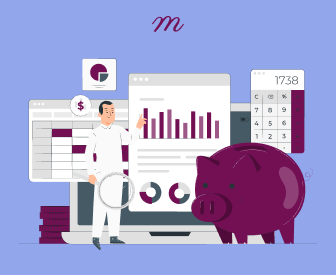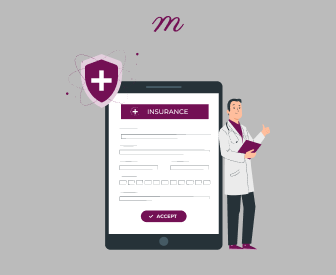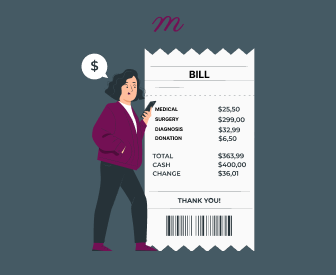Have your progress notes written for you automatically
Mental health billing software has become an important tool for therapists in private practice. This tool simplifies administrative tasks while enabling mental health professionals to provide excellent client care.
Aside from billing, the software includes practice management features like secure documentation and telehealth. This article will show you the 10 best billing software for therapists. The right billing software is crucial for reducing errors, boosting productivity and enhancing the financial growth of your practice.
Best Billing Software For Therapists
1. TheraNest
TheraNest is a popular billing and online practice management tool in the mental health field. The platform supports scheduling appointments, taking notes, including telehealth. TheraNest billing feature is built for mental health practitioners. It makes use of a quick and easy billing system.
This billing software affords therapists diversity and flexibility. The interface is user-friendly and the platform provides prompt customer service. It also has a secure client portal. TheraNest subscription plan starts at $42 per month.
2. SimplePractice
SimplePractice is a multifunctional platform used by therapists for invoicing and billing clients. It is an EHR and Practice Management Software built for mental health practitioners. SimplePractice has a straightforward interface with a client portal for smoother communication. It also has strong invoicing capabilities and excellent technical support. It is cost-effective. Pricing starts at $39 per month.
3. Tebra
Tebra, formerly known as Kareo focuses on managing behavioral health billing for therapists. It addresses insurance claims for small-sized practices or independent practitioners. Tebra’s features are also suitable for larger practices.
It has an intuitive dashboard and a client portal. This billing software for therapists has a polished and convenient design. It is simple and easy to use. Tebra provides effective customer support. Pricing is available only on request but is generally competitive.
4. DrChrono
DrChrono has a complete EHR solution, with incorporated billing features for therapists. It is very suitable for medium and large mental healthcare organizations. Its Revenue Cycle Management (RCM) feature enhances private practices. This billing software provides customizable note templates. It gives room for therapists to provide excellent client care.
The software has an intuitive interface and has a client portal. DrChrono comes with solidly built mobile applications. It is user-friendly and has an up-to-date design. DrChrono also has quick customer support. The price is adjustable based on the specific features your practice needs.
5. TherapyNotes
TherapyNotes is one of the best mental health billing software used by therapists. It is HIPAA compliant and guarantees the security of client data. It comes with amazing note-taking features which makes it a reliable choice for therapists.
The software requires little training and has a client portal. TherapyNotes is easy and simple to use with a competent billing system that boosts cash flow. Their customer service support is great. Pricing starts at $49 per month.
6. CounSol
CounSol is a great online practice management and billing software for solo therapists and small counseling teams. The software guarantees a secure client portal for easy access. CounSol is user-friendly and easy to navigate. It is an easily-operated tool option because it prioritizes client communication. The tool simplifies interactions by providing integrated messaging and invoicing.
The software efficiently manages customer accounts and payments. It also makes use of a neat and organized interface. Their customer support is highly regarded as it boosts client experience. Pricing begins at $30 per month and comes with the option of added features.
7. TheraPlatform
TheraPlatform is a multifunctional software used by mental health professionals. It incorporates billing management and teletherapy for practice management. It also features appointment scheduling and reminders to reduce missed appointments.
This billing software ensures timely payments through its systematic billing procedures. It is very user-friendly and has excellent customer support. Pricing starts at $39 a month.
8. Carepatron
Carepatron offers scheduling, billing, and telehealth features for therapists in private practice. This all-in-one tool gives a very seamless practice management experience. It is excellent for therapists seeking an affordable billing software. Carepatron’s efficient billing process reduces the amount of time taken to submit claims.
It is easy to use and set up. Its modern design aims to provide a wholesome user experience. The tool has excellent email and chat customer service. It also comes with a client portal. It is suitable for small to medium sized practices. Carepatron offers competitive pricing starting at $12 per month and per user.
9. Tebra
Tebra is a special software that combines billing, client interaction, and marketing tools. It eases the process of billing and it is perfect for businesses trying to grow their clientele. The software concentrates on operations and growth at the time. It is a beneficial addition to any practice.
Although, its pricing differs, you may need to contact their sales team for pricing information. It is an accessible interface with an intuitive design that enhances user experience. Its design makes it simple to navigate. Tebra has a quick response time and extensive customer support. The tool’s integrated telehealth features are aimed at improving the quality of care.
10. Therabill
Therabill is a billing system software that is strictly designed for behavioral health settings. This billing software ensures that mental health practices efficiently organize all financial processes. It handles all billing processes including invoicing, reporting, and insurance claims management. Therabill reduces administrative burdens by processing claims effectively.
TheraBill software provides extensive documentation and client management tools. It has dependable customer service and ease of navigation that increases workflow. The monthly cost per provider is available on request.
Comparative Analysis of Billing Software for Therapists
This comparative analysis seeks to compare the features of these billing software for therapists:
- Budget
For pricing, TherapyNotes, Therabill, and TheraNest are good for solo practitioners. TheraNest and Therabill are excellent choices for small practices due to their cost-effectiveness and all-in-one solution. Their price structures guarantee affordability without sacrificing essential functions. These essential functions include billing, documentation and scheduling.
DrChrono and Tebra are a bit more pricey. But they provide more features for larger practices. They are much more than a billing software. Some of their features include real-time tracking and claims management. They are highly beneficial for clinics that bill a lot of insurance.
- Ease of Use and Interface
The most easy-to-use billing softwares are TherapyNotes and SimplePractice. They are user-friendly for small to large sized practices. New users of the software can navigate the platform with ease.
Tebra and DrChrono may take some more time to learn but are very useful once mastered.
- Effectiveness
SimplePractice, TherapyNotes, and Tebra work best for insurance claims and billing. They are indispensable tools in the telehealth space for mental health therapists. These tools allow practitioners to conduct virtual therapy sessions. They also assist in handling administrative and billing tasks. These three software are strong players in complex billing system management.
CounSol and TheraNest provide extra features unique to therapeutic environments.These platforms are designed solely for mental health professionals. They provide personalized experiences like encrypted note-taking with HIPAA Compliance and a client portal.
- Design and Outlook
TheraPlatform, DrChrono, and SimplePractice all have sleek contemporary designs. Their designs are elegant and visually appealing.
TheraBill and Tebra prioritize functionality over aesthetics in their basic designs.
- Simple Navigation
Carepatron, SimplePractice, and TherapyNotes are simpler to use and more intuitive.
Tebra and DrChrono are difficult to use because of their abundant features.
- Variety of Features
DrChrono, TheraPlatform, and SimplePractice provide a variety of features. These include client portals, telehealth, and workflow customization.
Tebra distinguishes itself by fusing billing and marketing tools. It also assists practitioners in growing their clientele. Tebra expedites financial processes through client acquisition features. Billing is the primary focus of Tebra and TheraBill. But they both have minimal additional features.
Conclusion
Using the right billing software improves client care and the effectiveness of private practices. It is also a great addition when these billing software are also committed to telehealth integration, compliance, and user experience.
From the billing software for therapists discussed in this article, you can find the one that suits your practice best. The list includes software for both small to large sized practices. You can determine the tool to advance your practice by considering your preferences and weighing your options.
FAQ Section
What Are The Key Features To Look Out For In a Billing Software?
When choosing a billing software, it is crucial to look out for features like billing and invoicing. Also consider features like the ease in processing payments, submitting and processing claims. Verification of insurance, compliance, data reporting, and analytics are also key features to consider.
Is HIPAA Compliance Necessary For All Therapy Billing Software?
HIPAA compliance is an important aspect to consider when choosing your billing software. This ensures that the software is in line with standard regulations. HIPAA compliance also ensures the protection and security of client data.
What is the Benefit of Using Billing Software Specific to Therapists for Billing Management?
Using therapist-specific billing tools in management billing is important to avoid errors in billing. Most importantly, these billing softwares can reduce the likelihood of claim denials occurring. They also reduce workload and enhance client care.










